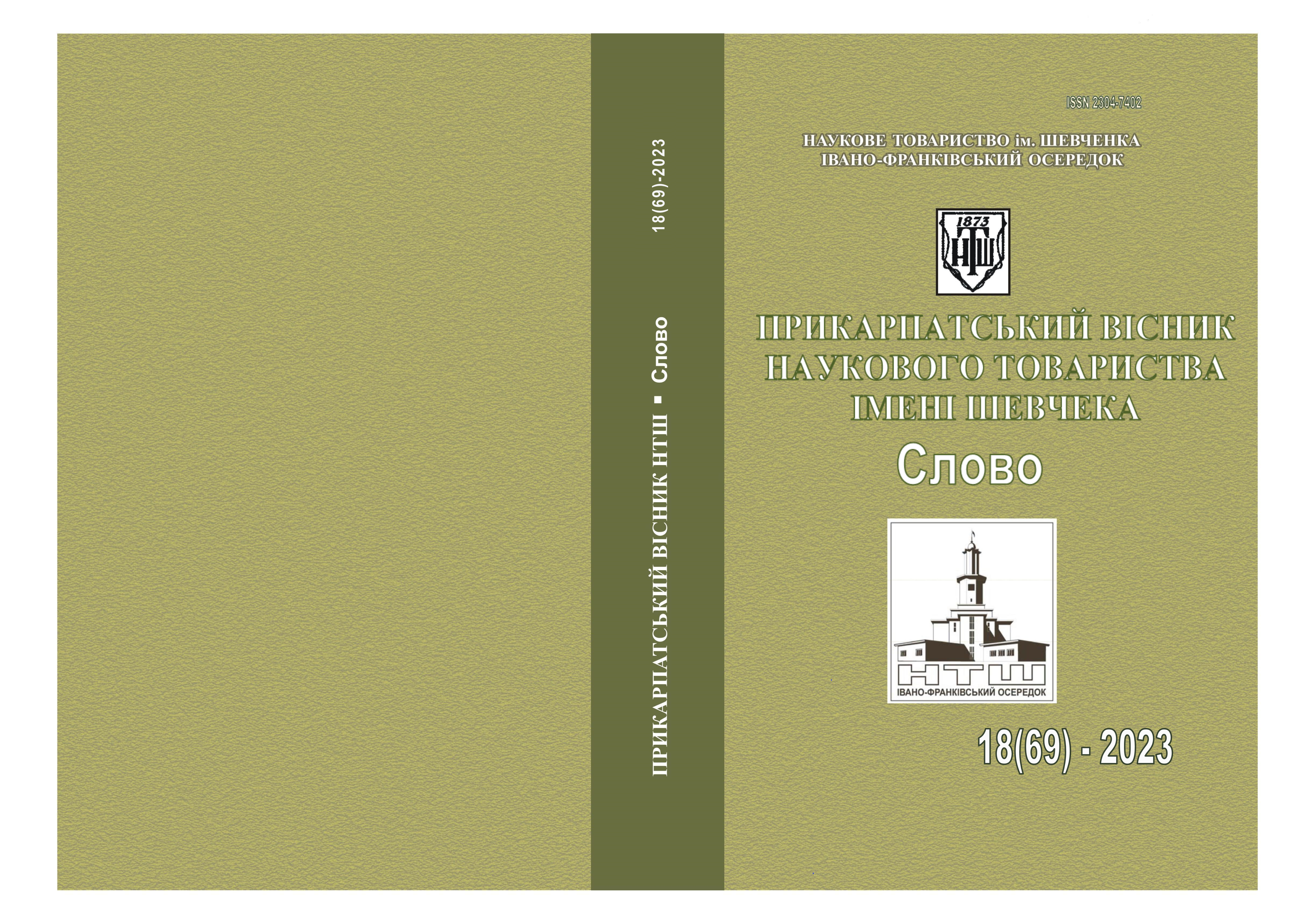Emancipatory Discourse in the Literary and Critical Works by Eliza Orzeszkowa and Nataliia Kobrynska
DOI:
https://doi.org/10.31471/2304-7402-2023-18(69)-253-263Keywords:
emancipation, literary and critical discourse, parity, women’s issue.Abstract
Aim. The article is devoted to the study of world-view and axiological vectors in the emancipatory discourse of E. Ozheshko and N. Kobrynska. The article deals with the analysis of common approaches to the presentation of emancipatory ideas in the literary and critical works by E. Orzeszkowa and N. Kobrynska, in particular, with the comprehension of the women’s role in the family and society, their opportunities to study and work on a parity basis with men. Both writers called for the formation of a new social consciousness in order to overcome established patriarchal norms and customary stereotypes through education and enlightenment. The similarity of world-view and aesthetic views, artistic and semantic parallels in the authors’ works is due to the consonant life axiology and the declaration of sometimes too radical views. Methods. For the comparative analysis, a number of basic scientific methods were used, including historical and literary, typological and biographical approaches. Results. Through the comparative analysis, the following main issues through which the writers declared world-view, spiritual and moral changes were identified: the need for a thorough education, the education of erudite female intellectuals, the social and professional integration of women as active participants and reformers, rather than passive observers, the formation of a new social consciousness. Scientific novelty. An attempt is made to make a comparative analysis of the emancipatory discourse in the literary and critical works of women writers. The author’s vision of the special function of women in social, spiritual and intellectual contexts is outlined.
References
Агеєва В. Жіночий простір: феміністичний дискурс українського модернізму. К., 2008. 360 с.
Кобринська Н. Вибрані твори. Київ, 1980. 446 с.
Книш І. Смолоскип у темряві. Наталія Кобринська й український жіночий рух. В., 1957. 302 с.
Крупка М. Емансипаційні тенденції в українській жіночій прозі кінця ХІХ – початку ХХ століть: автореф. дис…. кандидата філол. наук: 10.01.01. Київ, 2004. 24 с.
Легкий М. Проза Наталії Кобринської ( ідейно-естетична еволюція і поетика). Українське літературознавство. 2012. Випуск 75. С. 95–115.
Перший вінок. Жіночий альманах. Львів, 1887. 464 с. URL: https://odnb.odessa.ua/rarities/item/225#view (дата звернення: 28.07.2023).
Спатар І. Творчість Елізи Ожешко та українська література другої половини ХІХ – початку ХХ століття: компаративні вектори міжлітературного діалогу. Івано-Франківськ, 2021. 256 с.
«Чорна пані» Наталія Кобринська: розповідаємо про засновницю українського фемінізму. [Інтервʼю Зоряни Жарквої з Аллою Швець]. URL: https://povaha.org.ua/chorna-pani-nataliya-kobrynska-rozpovidayemo-pro-zasnovnytsyu-ukrayinskogo-feminizmu/ (дата звернення: 28.08.2023).
Шаф О.В., Гонюк О.В. Дух часу: феміноцентрична проза Наталії Кобринської в парадигмі «Реалізм – Модернізм». Закарпатські філологічні студії. Випуск 22. Том 1. С. 242–246. URL: http://www.zfs-journal.uzhnu.uz.ua/archive/22/part_1/42.pdf (дата звернення: 28.07.2023).
Швець А. Жінка з хистом Аріадни. Життєвий світ Наталії Кобринської в генераційному, світоглядному і творчому вимірах. Львів, 2018. 752 с.
Baszewska M. Pisarze pozytywistyczni o sytuacji kobiet. Na przykładzie twórczości Elizy Orzeszkowej i Bolesława Prusa. Tekstura. Rocznik Filologiczno-Kulturoznawczy. 2015.Tom 1(6). S. 37–54.
Borkowska G. Cudzoziemki. Studia o polskiej prozie kobiecej. Warszawa, 1996. 268 s.
Drabikowska M. Powieść nowoczesna a emancypacja. Zarys ewolucji gatunku jako systemu antycypacyjnego. Zagadnienia rodzajów literackich. Łódź. LI 1-2. S. 67–97. URL: https://dspace.uni.lodz.pl/bitstream/handle/11089/44342/rozprawy04_compressed.pdf?sequence=1&isAllowed=y (dostęp: 28.07.2023).
Górnicka-Boratyńska A. Stańmy się sobą. Cztery projekty emancypacji (1863-1939), 2018. 232 s.
Magnone L. Marta. Czterdzieści i cztery. Figury literackie. Nowy kanon. Warszawa, 2016. S. 413–429. URL: https://cutt.ly/nwzSQ60R (dostęp: 28.07.2023).
Orzeszkowa E. Kilka słów o kobietach. Publicystyka społeczna. Myślenie obywatelskie. Żydzi. Kwestia kobieca. T. 1. 2021. S. 617–768.
Orzeszkowa E. Widma. 1881. 139 s. URL: https://pl.wikisource.org/wiki/Widma_(pierwsze_wydanie) (dostęp: 28.07.2023).
Orzeszkowa E. Marta. Pisma w: w XXX t. Warszawa : Nakład Gebethnera i Wolfa, 1937. Т. ІІІ. S. 5–243.

